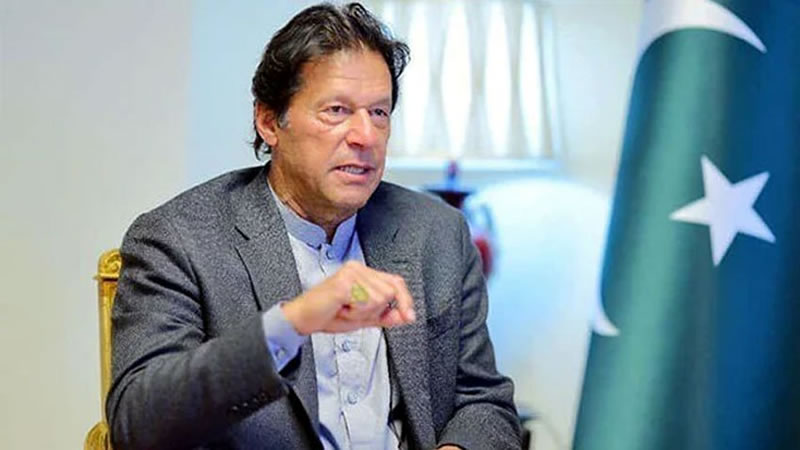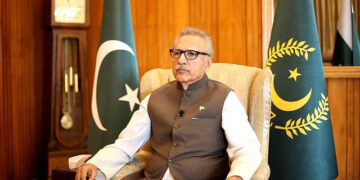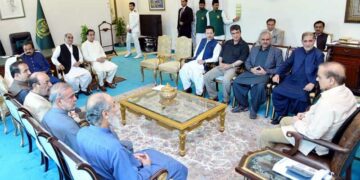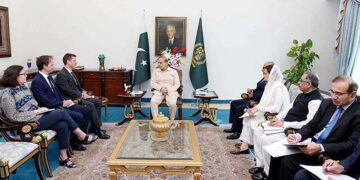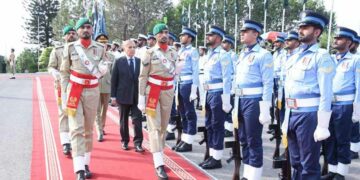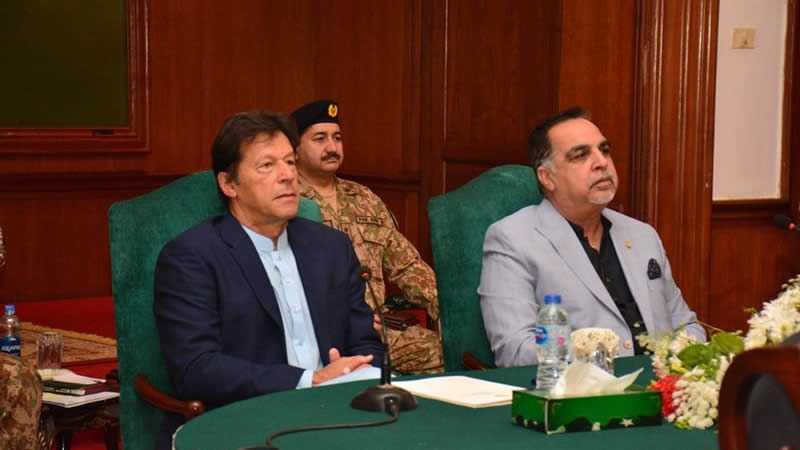Prime Minister Imran Khan has said that the United States “really messed it up in Afghanistan” as he questioned the American motive of Afghan invasion in the first place and then their subsequent attempts of seeking a political solution with the Taliban from a position of weakness.
The prime minister’s remarks come as the US military and Nato are in the final stages of winding up involvement in Afghanistan, which has seen a Taliban resurgence across Afghanistan.
“I think the US has really messed it up in Afghanistan,” the premier said during an appearance on PBS NewsHour, an American news programme, aired on Tuesday night.
PM Khan criticised the US for trying to “look for a military solution in Afghanistan when there never was one”.
“And people like me who kept saying that there’s no military solution, who know the history of Afghanistan, we were called — people like me were called anti-American. I was called Taliban Khan.”
He lamented that by the time the US realised that there was no military solution in Afghanistan, “unfortunately, the bargaining power of the Americans or the Nato (North Atlantic Treaty Organisation forces) had gone”.
The prime minister said the US should have opted for a political settlement much earlier when there were as many as 150,000 Nato troops in Afghanistan.
“But once they had reduced the troops to barely 10,000, and then, when they gave an exit date, the Taliban thought they had won. And so, therefore, it was very difficult for now to get them to compromise,” he told programme host Judy Woodruff.
When the interviewer asked whether he thought the Taliban resurgence was a positive development for Afghanistan, the prime minister reiterated that the only good outcome would be a political settlement, “which is inclusive”.
“Obviously, Taliban [will be] part of that government,” he added.
‘Last thing we want is a civil war in Afghanistan’
The premier described the “worst-case scenario” as being one where Afghanistan descends into a civil war. “From Pakistan’s point of view, that is the worst-case scenario, because we then … we face two scenarios, one [of them being] a refugee problem,” he said.
“Already, Pakistan is hosting over three million Afghan refugees. And what we fear is that a protracted civil war would [bring] more refugees. And our economic situation is not such that we can have another influx.”
Elaborating on the second problem, he expressed concerns that the fallout of a potential civil war across the border could “flow into Pakistan”.
The prime minister explained that the Taliban were ethnic Pashtuns and “if this [civil war and violence in Afghanistan] goes on, the Pashtuns on our side will be drawn into it.”
“That … is the last thing we want,” he said.
‘Extremely unfair’ to allege Pakistan supported Taliban
When asked about Pakistan’s alleged military, intelligence and financial support to Afghanistan, he replied: “I find this extremely unfair”.
The premier reminded Woodruff that 70,000 Pakistanis had died in the aftermath of the US war in Afghanistan, even when “Pakistan had nothing to do with what happened [in New York on September 11, 2001].”
At the time, Al Qaeda was based in Afghanistan and “there were no militant Taliban in Pakistan,” he said, maintaining that no Pakistan was involved in the attack on World Trade Centre.
“We had nothing to do with,” he repeated, regretting that the war in Afghanistan had resulted in a loss of $150 billion to Pakistan’s economy.


